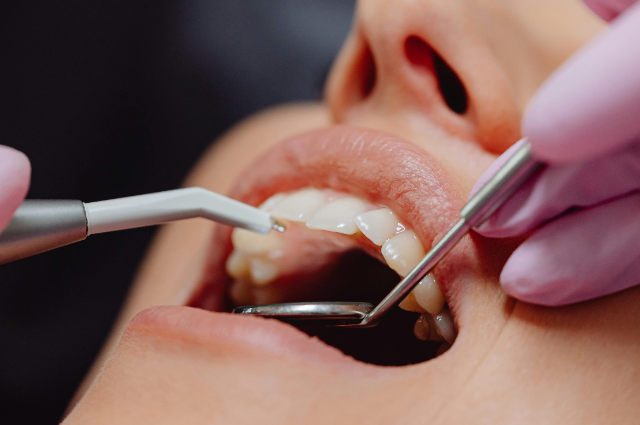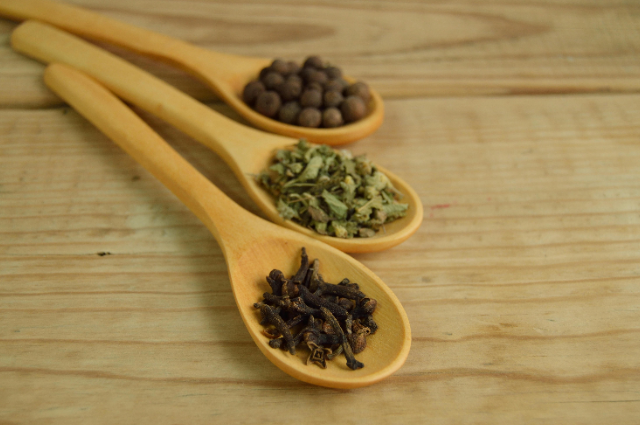
Dentistry, like many other branches of medicine, continuously evolves, seeking to find more effective, less invasive, and safer ways to manage and treat a wide variety of conditions. One of the most fundamental aspects of dental care is infection prevention and disinfection, crucial in maintaining the oral health of patients. Over time, various methods, from traditional to modern, have been employed to maintain hygiene and eliminate pathogens in the oral cavity. Among these, the integration of Herbo-Dontics, or herbal dentistry, has emerged as a promising area that combines the power of nature with modern science.
Herbo-Dontics integrates the use of herbal ingredients and plant-based compounds in the disinfection and treatment of dental issues. This practice not only offers an alternative to chemical-based solutions but also aligns with the growing trend toward holistic health practices that emphasize the healing properties of natural substances. In the context of dentistry, this approach promises a new dimension in the field of disinfection, potentially enhancing both the efficacy and safety of oral care treatments.
This article explores the concept of Herbo-Dontics, focusing on its role in the disinfection process in dentistry. We will delve into its historical roots, the scientific basis of herbal disinfection, specific herbs used, and the potential benefits and challenges of integrating herbal solutions into modern dental practice.
The History of Herbo-Dontics
The use of plants for medicinal purposes is as old as human civilization. Ancient cultures, including the Egyptians, Greeks, Chinese, and Indians, have long recognized the healing properties of various herbs, many of which were utilized in early forms of dentistry. Early dental practitioners, particularly in traditional Chinese and Indian medicine, used herbal remedies for oral hygiene, pain relief, and to address infections.
In India, the practice of Ayurveda has long included the use of herbal concoctions for maintaining oral health. Ingredients such as neem, clove, and turmeric have been used to treat oral infections and to prevent gum diseases. Similarly, in traditional Chinese medicine (TCM), herbs like ginseng, licorice, and mint were utilized for their antibacterial and anti-inflammatory properties to promote oral hygiene and alleviate tooth pain.
While the use of herbal remedies for oral health continued for centuries, it was with the advent of modern chemical-based medicines that these traditional practices were largely replaced. However, in recent decades, there has been a resurgence of interest in natural and alternative therapies, particularly in the realm of dentistry. This revival, fueled by growing concerns over the side effects and resistance associated with synthetic drugs, has brought Herbo-Dontics back into focus as a viable solution for oral health management.
Scientific Basis of Herbal Disinfection
The scientific basis for the use of herbal compounds in disinfection stems from their rich chemical composition. Many herbs contain bioactive compounds with antimicrobial, anti-inflammatory, and antioxidant properties that make them effective in controlling oral infections. These compounds often target bacteria, viruses, and fungi, disrupting their ability to proliferate or adhere to surfaces, thereby preventing infection and inflammation.
For instance, flavonoids, alkaloids, and terpenoids are some of the active compounds found in many herbs. These compounds have been shown to have potent antibacterial and antifungal effects, making them suitable for use in dental care. Tannins, another class of compounds present in certain plants, have been recognized for their astringent and antimicrobial properties, which are especially useful in controlling gum diseases such as gingivitis and periodontitis.
Research has also shown that some herbal extracts can reduce the formation of dental plaque, a primary cause of tooth decay and gum disease. For example, green tea and ginger have demonstrated plaque-reducing effects due to their polyphenol content, which interferes with bacterial adhesion to the tooth surface.
Moreover, several herbs have shown promise in enhancing tissue healing, an essential aspect of post-operative care in dentistry. Aloe vera and turmeric, for instance, contain compounds that promote wound healing and tissue regeneration, potentially speeding up recovery after dental procedures.
Common Herbs Used in Herbo-Dontics

Several herbs have gained recognition for their effectiveness in dental disinfection and treatment. Below are some of the most commonly used herbs in Herbo-Dontics:
1. Neem (Azadirachta indica)
Neem has been used for centuries in Ayurvedic medicine to treat various oral conditions, including gum diseases, toothaches, and infections. Neem is known for its strong antimicrobial, anti-inflammatory, and analgesic properties. It contains compounds such as azadirachtin and nimbidin, which are effective in controlling bacteria in the mouth, reducing plaque buildup, and promoting gum health.
Studies have shown that neem-based toothpaste and mouthwashes can significantly reduce the levels of Streptococcus mutans, a bacterium responsible for tooth decay. Neem also helps in reducing bad breath by inhibiting the growth of odor-causing bacteria.
2. Clove (Syzygium aromaticum)
Clove is another powerful herb with a long history of use in dental care. Its active compound, eugenol, has potent analgesic and antiseptic properties, making it an effective remedy for toothache and other oral infections. Clove oil is commonly used in dental procedures to numb the affected area, alleviate pain, and disinfect the oral cavity.
Clove's antimicrobial properties also make it effective in preventing gum diseases and maintaining oral hygiene. It has been shown to inhibit the growth of various oral pathogens, including those responsible for gingivitis and periodontitis.
3. Turmeric (Curcuma longa)
Turmeric, known for its active compound curcumin, is widely recognized for its anti-inflammatory, antioxidant, and antimicrobial properties. In dentistry, turmeric is used to treat gum diseases, reduce oral inflammation, and prevent bacterial infections. Research has shown that turmeric can effectively inhibit the growth of oral bacteria such as Porphyromonas gingivalis and Fusobacterium nucleatum, which are implicated in periodontitis.
Turmeric has also been found to promote the healing of oral tissues, making it a valuable aid in post-surgical recovery and the treatment of oral ulcers.
4. Aloe Vera (Aloe barbadensis miller)
Aloe vera is well-known for its soothing and healing properties, especially in the treatment of wounds and burns. In dentistry, aloe vera is used to treat mouth ulcers, gingivitis, and other forms of oral inflammation. Its active compounds, including polysaccharides, glycoproteins, and anthraquinones, have been shown to possess antimicrobial and anti-inflammatory effects, promoting tissue repair and reducing infection.
Aloe vera's ability to accelerate wound healing makes it an ideal ingredient in post-operative care, especially after procedures like tooth extractions and gum surgeries.
5. Green Tea (Camellia sinensis)
Green tea, rich in catechins, particularly epigallocatechin gallate (EGCG), has gained popularity for its oral health benefits. Green tea has been shown to inhibit the growth of oral bacteria, reduce plaque formation, and prevent gum diseases such as gingivitis. Its antioxidant properties also help protect against oxidative stress, which can contribute to the development of periodontal disease.
Regular consumption of green tea has also been associated with a reduction in the risk of dental caries and the prevention of bad breath.
Benefits of Herbo-Dontics in Disinfection
The integration of herbal remedies in dental disinfection offers several potential benefits:
1. Natural Antimicrobial Action
Herbal compounds often exhibit broad-spectrum antimicrobial properties, effectively combating a wide range of pathogens, including bacteria, fungi, and viruses. This makes herbal-based disinfectants a valuable tool in preventing oral infections and maintaining oral hygiene.
2. Reduced Side Effects
Unlike synthetic antimicrobial agents, which can cause adverse effects such as allergic reactions, tissue irritation, and antibiotic resistance, herbal disinfectants are generally well-tolerated and have fewer side effects. For patients seeking a more natural approach to dental care, herbal-based products can provide a safer alternative.
3. Holistic Oral Health Care
Herbo-Dontics emphasizes the importance of overall oral health, not just the elimination of pathogens. Many herbal remedies promote tissue healing, reduce inflammation, and support the body's natural defense mechanisms, offering a more holistic approach to oral care.
4. Environmental Sustainability
Herbal products are often more environmentally friendly than chemical-based alternatives. Many of the herbs used in Herbo-Dontics are renewable resources, and their cultivation typically has a lower environmental impact compared to the production of synthetic chemicals.
Challenges and Limitations of Herbo-Dontics
While the potential of Herbo-Dontics is vast, several challenges remain:
1. Lack of Standardization
One of the biggest challenges in incorporating herbal products into mainstream dentistry is the lack of standardization. The potency and efficacy of herbal remedies can vary depending on factors such as plant species, cultivation methods, and extraction techniques. Without standardized formulations, it can be difficult to ensure consistent results.
2. Scientific Evidence
While there is a growing body of research supporting the benefits of herbal compounds in dentistry, more rigorous clinical trials are needed to establish definitive evidence regarding their safety and effectiveness. The scientific community requires more data to fully integrate herbal solutions into mainstream dental practice.
3. Regulatory Issues
Herbal products are often not subject to the same regulatory scrutiny as pharmaceutical drugs, which can lead to inconsistencies in quality and safety. Dentists and patients alike must be cautious when choosing herbal products to ensure they are sourced from reputable manufacturers and meet quality standards.
Conclusion
Herbo-Dontics represents a promising frontier in dental care, offering a natural and holistic approach to disinfection and oral health maintenance. The use of herbal compounds in dentistry provides a multitude of benefits, including antimicrobial action, reduced side effects, and enhanced tissue healing. While challenges remain in terms of standardization, scientific validation, and regulation, the future of herbal dentistry looks bright, especially as more research is conducted to uncover the full potential of plant-based treatments.
As the field of dentistry continues to evolve, integrating the wisdom of traditional herbal medicine with modern scientific advances could offer patients safer, more effective, and environmentally friendly solutions for maintaining optimal oral health. By embracing the principles of Herbo-Dontics, the dental profession may unlock new possibilities for improving patient care while honoring nature's timeless healing wisdom.
